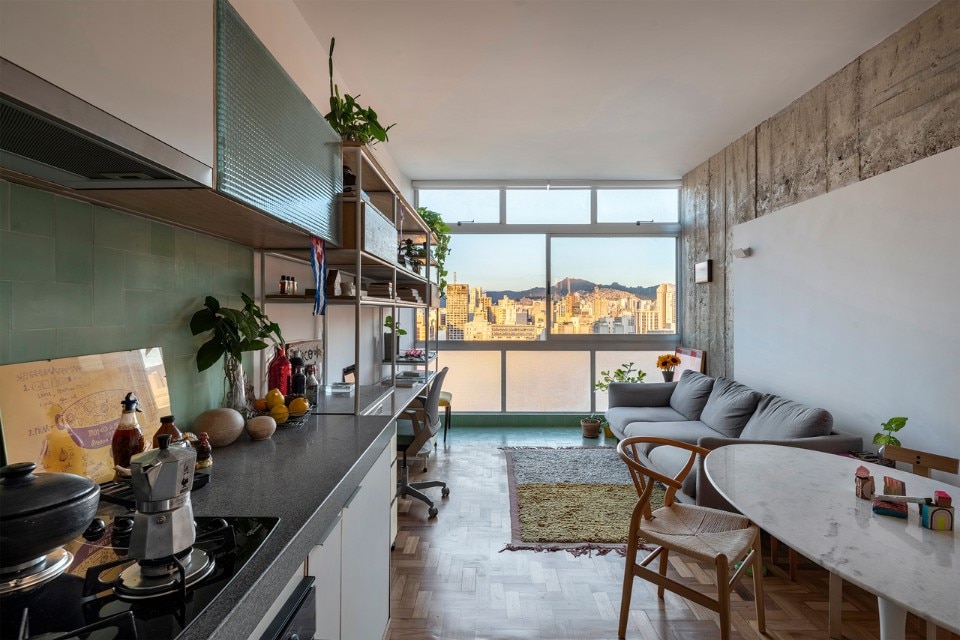Biri Office has recently completed the renovation of an apartment in the Juscelino Kubitschek housing complex, designed by Oscar Niemeyer over seventy years ago. The project appears emblematic of a possible approach to modern heritage and exhibits position statements and compromises generating a delicate balance between historical values and use values, as Alois Riegl would have called them. The choices operated for this project can be read in this light, choices that nurture a constant negotiation aiming to safeguard both the monument and its capacity to achieve its mandate in the contemporary.

With the 40 floors of block B soaring Belo Horizonte’s skies and the 13 flat types housing families of diverse composition and social backgrounds, the JK is an icon of the Brazilian modern movement and since 2022 it has been listed as cultural heritage. The Brazilian master had here applied the typological solution studied for the never-realized Hotel Quitandinha: the aggregation principle of dwelling units based on staggered floors. The semiduplex ensured gaining openings on two fronts, and cross ventilation, introducing a filter space between the domestic realm and the circulation areas, and minimizing the presence of corridors.
Biri orchestrated a set of punctual actions tied more by the evocative power of inhabiting a monument and by its display, than by a some self-affirming spatial concept. For instance, substituting portions of parquet pavements with hydraulic tiles addresses both the requirements of mitigating humidity effects and tuning with rough concrete. The super-furniture system performing as a shelf, kitchen, wine cellar, bench, archive, and workstation works as a domestic mini-infrastructure aimed at preserving the interiors’ spatial unity. At the same time, the opening on the wall separating the two stair ramps sounds more like a poetic gesture. Likewise, the bed headboard in marine plywood contrasts with the perception of exposed concrete of the fronting wall.





















